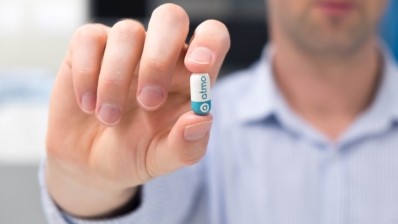Plant-based diet helps mice ward off GI infection: Study

This week, KFC announced the release of the ‘Zero Chicken’ sandwich at 900 locations across the United Kingdom. The plant-based meat category is worth over $800 million alone, with sales up 10% in the past year, according to Plant-Based Foods Association. So it’s no wonder this once ‘fringe’ practice has found itself in the mainstream.
According to the Good Food Institute, the retail market for plant-based foods is worth almost $4.5 billion. Plant-based foods grew 11% in the past year and 31% over the past two years. In the US, retail food sales grew just 2% over the past year and 4% in the last two years.
“Plant-based foods are a growth engine, significantly outpacing overall grocery sales,” said Plant-Based Food Association’s Julie Emmett. “We are now at the tipping point with the rapid expansion of plant-based foods across the entire store, so it is critical for retailers to continue to respond to this demand by offering more variety and maximizing shelf space to further grow total store sales.”
Putting plants to the test
Plant-based diets have been linked to a number of health benefits. A 2019 review published in the journal Nature found improved glucose, insulin, and cholesterol levels, as well as weight loss and decreased inflammation for participants who consumed a plant-based diet ranging from three to 24 months. An earlier study showed participants had decreased cholesterol after maintaining a vegan diet for just four weeks.
Researchers at the University of Texas (UT) Southwestern decided to put the plant-based diet to the test by exploring how the diet might protect from foodborne gastrointestinal (GI) infection in mice.
“This work highlights that differential dietary sugar availability influences the relationship between the microbiota and enteric pathogens, as well as disease outcomes,” according to the authors of the study, which was published in Nature Microbiology.
Study details
For the study, scientists fed mice pectin, a polysaccharide that can be found in berries, apples, and other fruit. Plant-rich diets are high in pectin, which is a thickening agent that has a jelly-like consistency.
For one week, researchers fed six mice a chow diet with 5% extra pectin from citrus peel while the four other mice were fed a typical diet. Overall, the mice that consumed pectin were found to withstand infection.
Researchers measured the level of bacteria in the mouse gut during daily stool checks. They also inspected bacteria levels in the small and large intestines (called the cecum).
Findings
The researchers found that mice on the pectin-enriched chow diet had about 10,000 harmful bacteria cells in the cecum, compared to 1 million bacteria in mice on the typical diet. The pectin group also had fewer symptoms, suggesting that a 5% pectin level may be sufficient enough to help mice stave off a gastrointestinal infection.
"Our study finds first that the good E. coli and the pathogenic ones like EHEC use different sugars as nutrients," said Vanessa Sperandio, Ph.D., professor of microbiology and biochemistry at UT Southwestern.
“Second, we find that dietary pectin protects against the pathway the pathogenic EHEC uses to become more virulent."
Sperandio, one of the authors of the study, said while the research isn’t translatable to humans yet, she hopes to gain a better understanding of how intestinal disease develops, which could ultimately lead to new vaccines or drugs.
Source:
Nat Microbiol
Dec 23 (2019) doi:10.1038/s41564-019-0641-0
“Diet-derived galacturonic acid regulates virulence and intestinal colonization in enterohaemorrhagic Escherichia coli and Citrobacter rodentium”
Authors: A. Jimenez, et al.
















